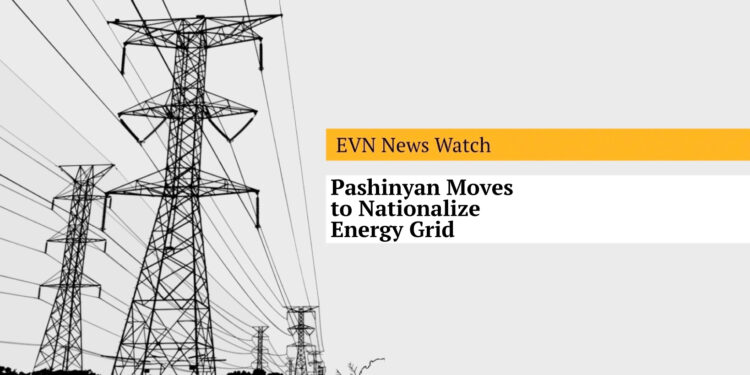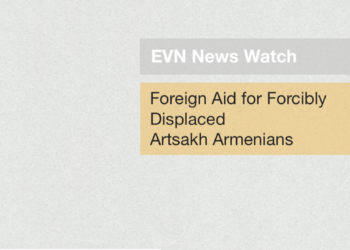News Watch
Freedom House Assesses Armenia’s Democracy
Freedom House's Nations in Transit 2024 report downgraded Armenia's democracy score. It also highlighted the spread of autocracy in the region, emphasizing that Western democracies have been inconsistent and hesitant in defending international norms, enabling autocracies to evade accountability.
EU and the U.S. Pledge to Support Armenia’s Resilience
A high-level meeting designed to support Armenia’s economic resilience took place in Brussels on April 5 and was met with criticism by Azerbaijan and Russia. Hovhannes Nazaretyan explains.
The Four Villages: What We Know
Azerbaijan has been demanding Armenia withdraw from four villages in the Tavush region. There is much confusion around what these villages are and what a potential withdrawal could mean for Armenia. Hovhannes Nazaretyan explains.
U.K. Offshore Ownership Registry Reveals Luxury Properties Owned By Armenian Ex-President’s Family
In collaboration with the Organized Crime and Corruption Reporting Project (OCCRP), Armenian journalists uncover that several UK properties owned by the sister of Armenia's ex-President Armen Sarkissian are held through opaque offshore companies. This revelation raises concerns about transparency and potential legal implications.
After Inaction on Nagorno-Karabakh, U.S. Continues to “Warn” Azerbaijan
In the first hearing in the U.S. Congress since the ethnic cleansing of the indigenous Armenian population of Nagorno-Karabakh by Azerbaijan, U.S. officials warn Baku that the use of force against Armenia is “completely unacceptable.”
News Watch Artsakh: October 2023
At 1 p.m. on September 19, Azerbaijani Armed Forces launched a wide-scale attack on Artsakh (Nagorno-Karabakh), violating the November 9, 2020, trilateral statement. A ceasefire began 24 hours later on September 20, disarming the Artsakh Defense Army and forcibly displacing almost the entire population to Armenia via the Lachin Corridor. By decree of the Artsakh president, all state institutions will be dissolved by January 1, 2024, effectively ending the "Republic of Nagorno-Karabakh (Artsakh)."
Services Available for the Forcibly Displaced From Artsakh
After Azerbaijan’s large-scale military operation in Artsakh on September 19, the forcibly displaced Armenian population, over 100,000 people, are now in Armenia. Gohar Abrahamyan provides information about state services available to them.
Foreign Aid for Forcibly Displaced Artsakh Armenians
With the Artsakh Republic ethnically cleansed by Azerbaijan, over 100,000 forcibly displaced Armenians from Artsakh are now in Armenia facing many challenges. Several UN agencies have provided support and a number of countries have offered aid.
U.S. Warns Baku But “Why Is Aliyev Not Opening the Corridor”?
The U.S. Senate Foreign Relations Committee held a hearing on the crisis in Artsakh (Nagorno-Karabakh) with Acting Assistant Secretary of State Yuri Kim as the sole witness, who said the Lachin Corridor must open without delay, that the U.S. will not tolerate military action or ethnic cleansing against the people of Artsakh but couldn’t answer the question: Why is Aliyev not opening the Corridor?
News Watch Artsakh: September 2023
The humanitarian crisis in Artsakh (Nagorno-Karabakh) has reached a tipping point. For almost nine months, the Lachin Corridor has been under a blockade and since June, delivery of humanitarian aid by the International Committee of the Red Cross (ICRC) and Russian peacekeepers, has also been blocked by Azerbaijan. Live updates from the month of September as the siege of Artsakh continues.












